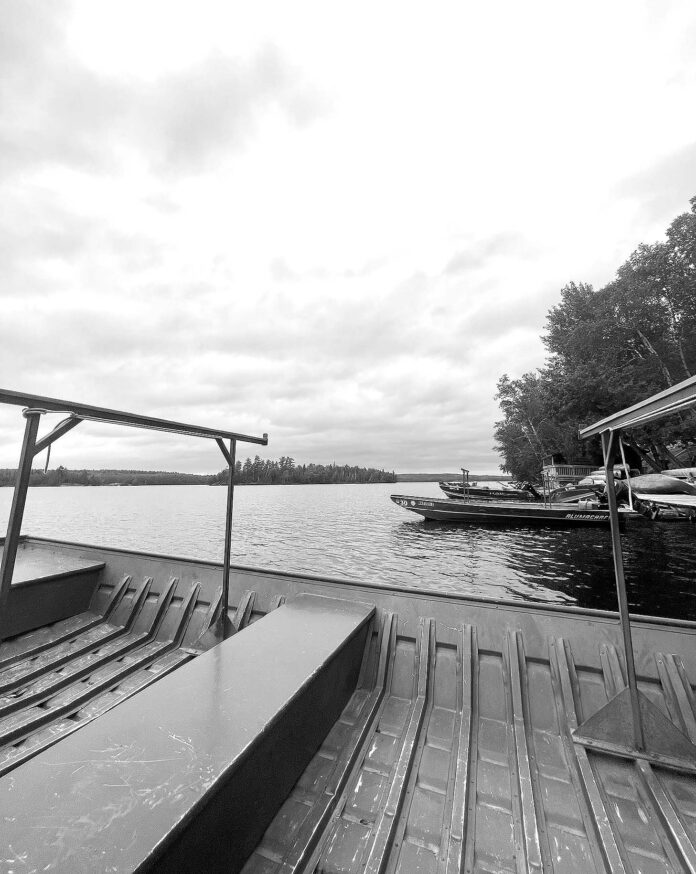The ability for people to use motorized boats in select areas of the Boundary Waters Canoe Area Wilderness will be allowed to continue following a ruling Monday from a federal judge.
At stake were how many motorized boats the U.S. Forest Service should allow select businesses to operate in the BWCA Wilderness. In a court ruling, Judge Nancy Brasel denied a request from the environmental group Wilderness Watch to stop, reduce, or further restrict motorized towboat usage in the BWCA.
Wilderness Watch claimed that the Forest Service was not upholding its self-imposed restrictions and limitations on towboat services. The environmental organization filed the case in court against the Forest Service, saying, essentially, that the federal organization is not following its own rules. The Forest Service’s most recent figures showed that in 2019 there were 4,164 tows made in the BWCA Wilderness. The year prior there were 4,011 tows. These figures are drastically higher than should be allowed under the Boundary Waters Canoe Area Wilderness Act of 1978, according to officials from Wilderness Watch.
The courts saw it differently.
“The Court concludes that the Forest Service has articulated a reasonable methodology for measuring motorboat use under the BWCAW Act,” Judge Brasel wrote in her ruling. “Using that methodology, the court concludes that motorboat use has not exceeded the base period use.”
In a conversation with Paddle and Portage Sept. 29 with Kevin Proescholdt, the conservation director for Wilderness Watch, he said the organization was “disappointed” in Monday’s ruling.
The court case brought into question the longstanding practice of using motorized towboats to help Boundary Waters visitors get started on their wilderness trips. The idea behind tows, in part, is that the Forest Service believes the use of towboats to assist canoeists starting their journey disperses visitors deeper into the million-acre BWCA Wilderness. It also helps paddlers get a jump start to travel faster across Moose Lake near Ely, and other lakes including Newfound and Sucker, as they approach the Prairie Portage Ranger Station into Quetico. Some outfitters at the end of the Gunflint also use the towboat service on Saganaga Lake to help paddlers reach Quetico Provincial Park via the Cache Bay Ranger Station.
On the west side of the wilderness, shutting down tows or reducing the tow capacity would have impacted Williams and Hall, LaTourell’s, and Spirit of the Wilderness, among other outfitters. The ruling would have a much larger impact on the Ely area, where many canoeists receive a tow across Moose and other lakes in the Ely area each season.
“It allows many of our guests to reach more remote locations a bit quicker and helps spread groups out,” said Ginny Nelson, a co-owner of Spirit of the Wilderness. “It also allows some of our guests, with limited mobility, to also access the (Boundary Waters) a bit easier.”
On the eastern side of the wilderness, altering how many or shutting down commercial tows would have impacted Tuscarora Lodge and Outfitters, Seagull Outfitters, and Voyageur Canoe Outfitters (VCO) most prominently.
“This is not only important for us as a small business, but even more so for our customers who rely on towboat service on Saganaga Lake,” said Matt Ritter, a co-owner at VCO. “We truly appreciate all the work the Forest Service puts into managing and protecting this beautiful wilderness.”
In 2023, Judge Nancy Brasel said that halting the tow services would impact the ability for “older visitors and visitors with limited mobility” to experience the BWCA. Brasel presided over the most recent hearing in the case as well, which took place in late April in Minneapolis.
Meanwhile, the Forest Service has not taken a clear stance publicly on the number of towboats that operate in the BWCA Wilderness. Furthermore, motorized boats and commercial tows inside the wilderness line are a significant issue as the Forest Service revisits the plan it uses to manage the BWCA Wilderness. In a broader statement he made last spring about the wilderness of the Boundary Waters, Tom Hall, the forest supervisor for Superior National Forest, said changes to the agency’s forest plan directive can better position the Forest Service to restore and preserve wilderness character and meet the purposes of wilderness described in the 1964 Wilderness Act and subsequent BWCA Wilderness Act from 1978.
“Our implementation and monitoring over the past 30 years, and changes to national wilderness management policy and guidance, have highlighted several issues affecting wilderness character in the BWCAW and the wilderness experience for visitors,” Hall said.
Paddle and Portage reached out to the Forest Service for comment on this story. In statement sent Sept. 30, Hall said the ruling was “good news” for Boundary Waters visitors.
“It is good news that towboats in the BWCA (Wilderness) are able to continue, and the American public is still able to access and recreate on their public lands,” Hall said.


